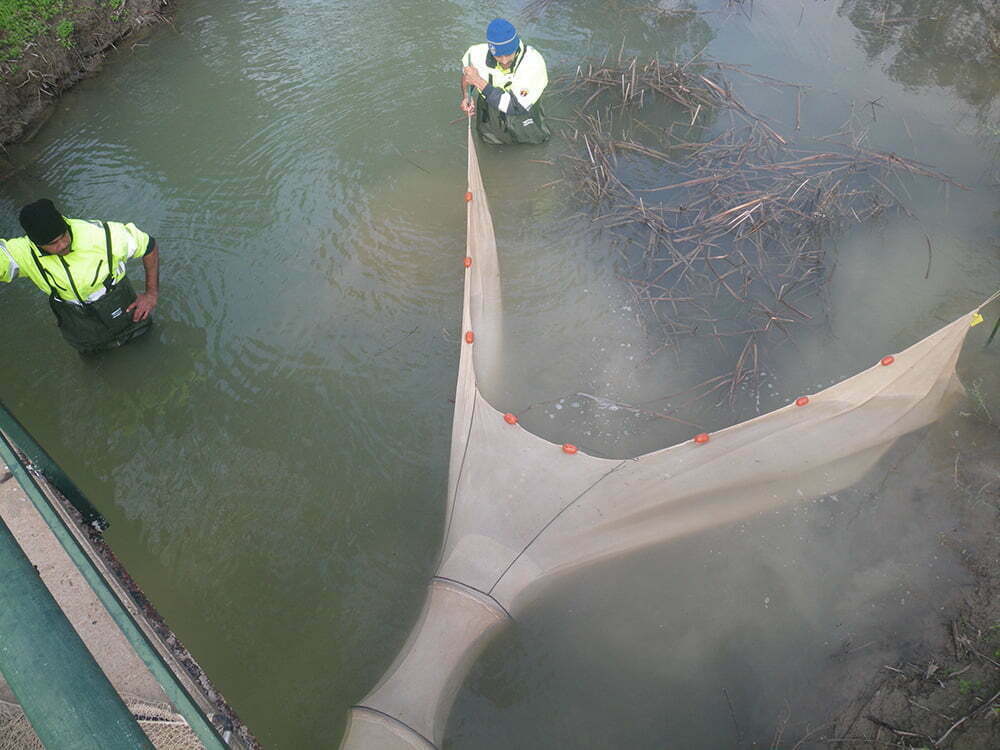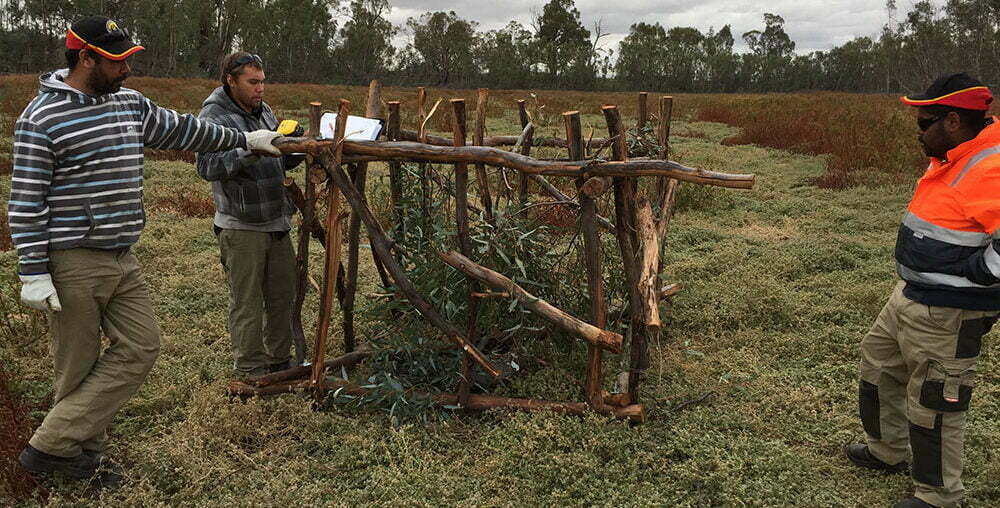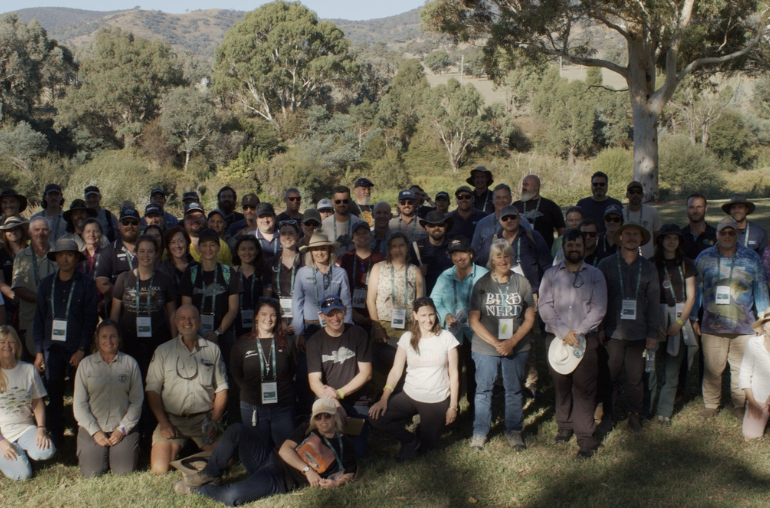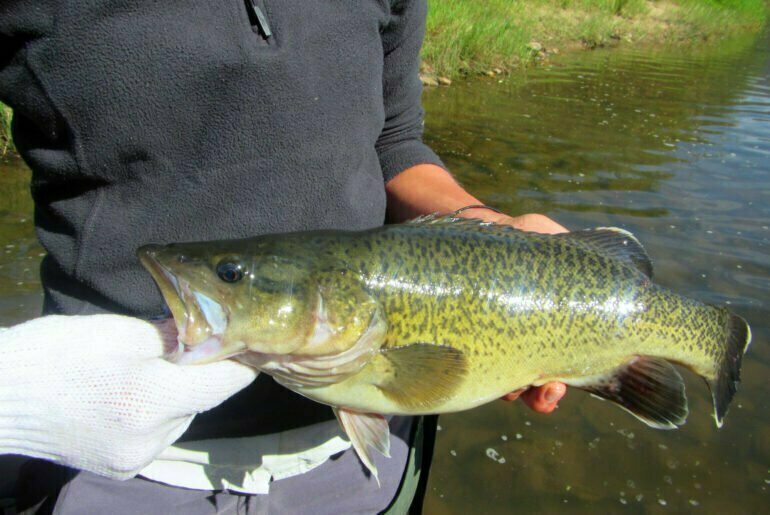The Barkindji Maraura Elders Environment Team (BMEET) are working to improve fish habitat in the lower Darling River and Thegoa Lagoon. In partnership with the Murray-Darling Freshwater Research Centre (MDFRC), the team is involved in a cultural science research project that is bringing together science and cultural knowledge. The team recently presented their work at the Native Fish Forum and were congratulated for their terrific efforts. Their projects currently include:
Fish hotels

This project is increasing the amount of habitat for native fish in the lower Darling River and Thegoa Lagoon. Several different designs of fish hotel are being built, with these being monitored to see which fish species are using the new ‘real estate’. The larger structures in the lower Darling River are designed for Murray Cod and Golden perch to use, and the smaller ones in Thegoa Lagoon will hopefully provide good habitat for small-bodied fish species. These projects were partly funded by NSW Office of Environment and Heritage and the NSW Recreational Fishing Trust.
Dr. Wayne Robinson from Charles Sturt University spent a couple of days with the team in August to make sure the research and monitoring being used at Thegoa Lagoon and Fletchers Lake is robust. This is important in ensuring that managers and other scientists can have confidence in the project’s results.


Living scar trees
The team are also trialing a new monitoring method to test if live scar trees respond to environmental water in the same way that non-scar trees do. Trees are being surveyed at Thegoa Lagoon and Fletchers Lake Reserve. There are a lot of scar trees that were used for canoes, coolamons, shields and other culturally important trees like boundary trees. MDFRC staff have learnt a lot by doing these surveys with BMEET. This project combines cultural knowledge with western techniques of monitoring tree health.
BMEET River Rangers have also just started a Diploma in Conservation and Land Management. The course will be designed to fit with the cultural science research project, and MDFRC will provide support and mentoring for BMEET staff. SuniTAFE is setting up this course in consultation with the cultural science team.
About BMEET:
BMEET was formed by the Barkindji Maraura Elders Council to undertake environmental research in the lower Darling region, west to Lake Victoria. They have been operating out of our office in Dareton, NSW for about 4 years. BMEET has an Aboriginal Board of Directors, 9 Aboriginal staff and one non-Aboriginal staff member.
Funding partners are Indigenous Advancement Strategy and La Trobe University.
Project partners include NSW Office of Environment and Heritage, NSW DPI Water, NSW DPI, Murray Darling Wetlands Working Group, Sunraysia Institute of TAFE, Charles Sturt University, NSW Recreational Fishing Trusts, Wentworth Shire Council.
Related stories:
You can find out more about this great group at their website as well as their story on Riverspace ‘Environmental-watering-of-fletchers-creek-the-value-of-project-partnerships’.



